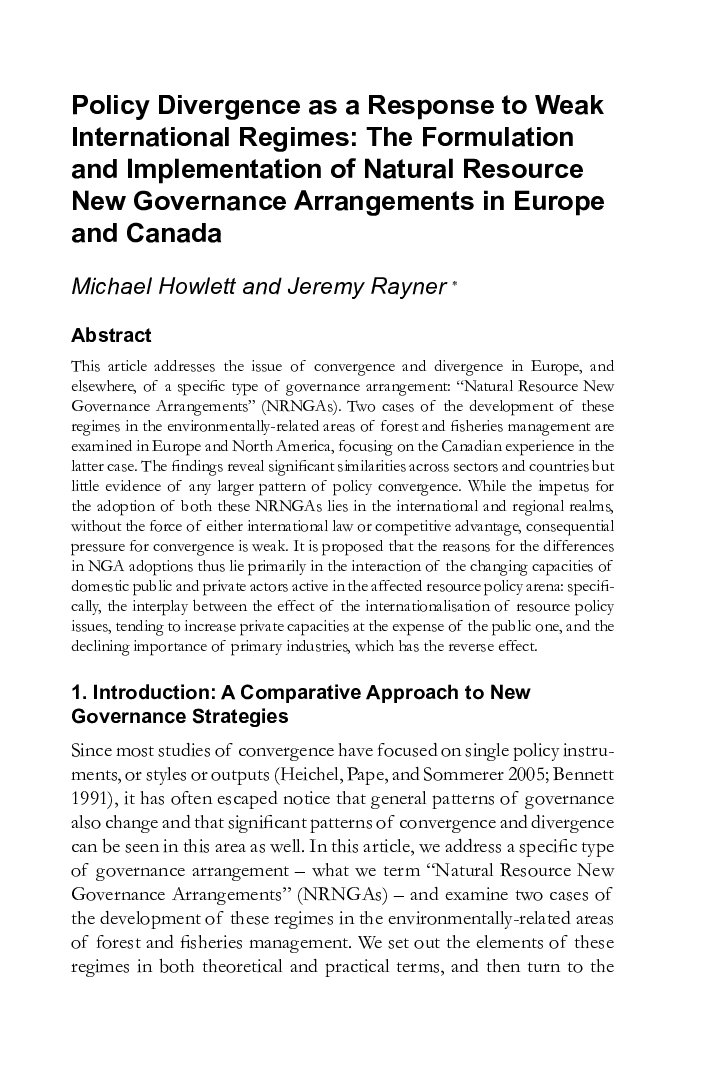| Article ID | Journal | Published Year | Pages | File Type |
|---|---|---|---|---|
| 10507529 | Policy and Society | 2005 | 30 Pages |
Abstract
This article addresses the issue of convergence and divergence in Europe, and elsewhere, of a specific type of governance arrangement: “Natural Resource New Governance Arrangements” (NRNGAs). Two cases of the development of these regimes in the environmentally-related areas of forest and fisheries management are examined in Europe and North America, focusing on the Canadian experience in the latter case. The findings reveal significant similarities across sectors and countries but little evidence of any larger pattern of policy convergence. While the impetus for the adoption of both these NRNGAs lies in the international and regional realms, without the force of either international law or competitive advantage, consequential pressure for convergence is weak. It is proposed that the reasons for the differences in NGA adoptions thus lie primarily in the interaction of the changing capacities of domestic public and private actors active in the affected resource policy arena: specifically, the interplay between the effect of the internationalisation of resource policy issues, tending to increase private capacities at the expense of the public one, and the declining importance of primary industries, which has the reverse effect.
Related Topics
Social Sciences and Humanities
Social Sciences
Geography, Planning and Development
Authors
Michael Howlett, Jeremy Rayner,
